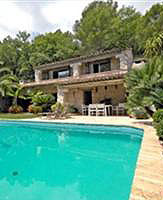Tenant protection laws are onerous
 French law is STRONGLY PRO-TENANT, even though initial rents are freely determined. Strong security of tenure is given to the tenant, and the legal process is labyrinthine.
French law is STRONGLY PRO-TENANT, even though initial rents are freely determined. Strong security of tenure is given to the tenant, and the legal process is labyrinthine.
Can landlord and tenant freely agree on rent?
The initial rent can be freely agreed between the owner and the renter. However, the rent can be revised only once a year, and only if a clause in the contract (carefully drafted) specifies it. The increase cannot be above the increase of the four-quarterly average of the INSEE index of construction costs. Index clauses and periodic clauses must comply with this.
Taking out home insurance is a legal requirement in France. In a rental situation, it is the tenant's responsibility to do so; the landlord may be reluctant to rent out property to prospective tenants who are not insured or who do not plan to get insurance.
Barring such clause, if at the end of the contract the owner wishes to raise the rent, he must demonstrate that the rent is manifestly underneath the current standard for the area and for comparable residences, by furnishing nine examples, each with extensive details - exact addresses, surface areas, state of decoration, date of construction, time during which the residences have been rented, and rental amount. If the increase arrived at is more than 10%, it must be spread over six years, even if the contract is only for three years. If no agreement is reached, the owner must go the Departmental Conciliation Commission (a free service), and if that fails, to a judge.
Deposits
The tenancy contract may stipulate a deposit of not more than two months' rent, and only if the rent is not paid in advance.
What rights do landlords and tenants have in France, especially as to duration of contract, and eviction?
French law generously protects the tenant (the locataire).
An unfurnished property contract has a minimum duration of three years (if the proprietor is a person), or six years (if the proprietor is a company or society). An individual owner can make a shorter contract (one year minimum, except in the special case of holiday lets) only if he needs to recover the property for professional or family reasons, e.g., retirement, return from abroad, need to house a family member. If no limit is fixed in the contract, three years are automatically applied.
Furnished property benefits from slightly different treatment. The contract duration is for one year; at the contract end it is automatically renewed, unless notice has been given by either side. That aside, furnished contracts are less regulated as concerns deposits, charges, the obligations of landlord and tenant, and the documents to be attached to the contract.
Furnished property is taxed as professional income, and is exempt from value added tax. The owner is liable to pay local taxes.
 During the contract, the tenant can leave any time he wishes, subject to two, or more commonly, three months' notice (reduced to one month if the tenant loses his job, is over 60 and in bad health, etc). The landlord is not free to give such notice.
During the contract, the tenant can leave any time he wishes, subject to two, or more commonly, three months' notice (reduced to one month if the tenant loses his job, is over 60 and in bad health, etc). The landlord is not free to give such notice.
In both cases when the contract ends, the owner can only re-occupy the property if:
- He or a member of his immediate family intends to live there
- He intends to sell
- For another serious and legitimate reason, such as that the rent has not been paid, or the tenant has not taken home insurance, or abuses his rights to use the dwelling
Notice must always be given at least six months before the end of the contract. It must be sent by registered post or by a bailiff. If the landlord intends to sell, he must send a copy of the offer (including the price) to the tenant, who has a priority right to buy.
The tenant can rarely be evicted before the term ends; perhaps only if the building is likely to fall down, when the mayor can evict the tenants. Otherwise, e.g., even for non-payment of rent, the landlord has to wait till the end of the term, and the notice must be sent at least six months before the end of the term, and complex conditions must be complied with. Even then, the process will take between six months to a year and a half from the end of the contract.
 A shorter procedure exists if the contract includes a resolution clause (clause resolutoire), but this can only cover:
A shorter procedure exists if the contract includes a resolution clause (clause resolutoire), but this can only cover:
- non-payment of rent
- non-registration of home insurance
A resolution clause allows the immediate termination of the contract after a two months' notice, if the specific obligation fixed in the contract is not satisfied.
The contract (le bail) must be in writing. There are a number of obligatory clauses, and also many forbidden clauses. The 1989 Act (Art 8) prohibits the tenant from sub-renting without a written agreement from the landlord.
How effective is the French legal system?
Tenancy law is enforced before the courts. Procedures are long, the courts are saturated, and lack essential powers.
The eviction process is organized by articles 61-66 of the 9 July 1991 Act. The court decision containing the eviction must be notified to the tenant.
- After a grace period granted by the judge (usually six months), the landlord must ask the tenant to leave through a commandement de quitter les lieux, which must contain specific information, e.g., inform the tenant that he may ask the judge for extra time in the dwelling.
- If the judge grants a delay, by law the tenant has another two months to leave the dwelling. During this time he can ask le juge de l'execution des peines to postpone the eviction order for between 3 months to 3 years, if seriously unfair consequences could result from the eviction (family with no place to go, children out of school, etc).
- If the tenant has not left, the bailiff can ask the préfet for police help - but no one can be evicted during winter, i.e., between November 1 to March 15.
- The préfet can anyway refuse to grant his help, e.g., if the family is composed of many children.
- The landlord can then (having failed to get his tenant out) go to the Administrative Courts to ask for damages, though it takes a long time to obtain them.
EVICTION FOR NON-PAYMENT OF RENT |
||
| Duration until completion of service of process | 16 | |
| Duration of trial | 75 | |
| Duration of enforcement | 135 | |
| Total Days to Evict Tenant | 226 | |
| Courts: The Lex Mundi Project | ||
Legislation
The ruling legislation is the Mermaz Act of 9 July 1989. Minor modifications are contained in the 21 July 1994 Act and the 29 July 1998 Guiding Act.
Brief history: Recent changes in French landlord and tenant law
The 1981 Socialist Party victory brought the watershed 1982 Quillot Act. While previously most tenancy contracts were verbal, this act imposed a written contract, required minimum terms, and strictly limited conditions for termination.
As soon as the conservative parties returned to power in 1986, they repealed this act and passed another one. When the socialists returned to power, they too repealed the conservative act. Their 1989 Mermaz Act is the basis of the present law; modifications have not been substantive.
 France encourages private individuals to build and rent dwellings. Many loans, tax subsidies and tax incentives exist, especially to build for rental to people earning less than a fixed amount. Conversely, leaving buildings empty is penalized by the taxe d'inhabitation.
France encourages private individuals to build and rent dwellings. Many loans, tax subsidies and tax incentives exist, especially to build for rental to people earning less than a fixed amount. Conversely, leaving buildings empty is penalized by the taxe d'inhabitation.
Yet the housing situation is not good. "Slums are reappearing in suburbs of large cities, and more and more people have trouble finding an affordable dwelling to rent..." notes the European University Institute report on France.